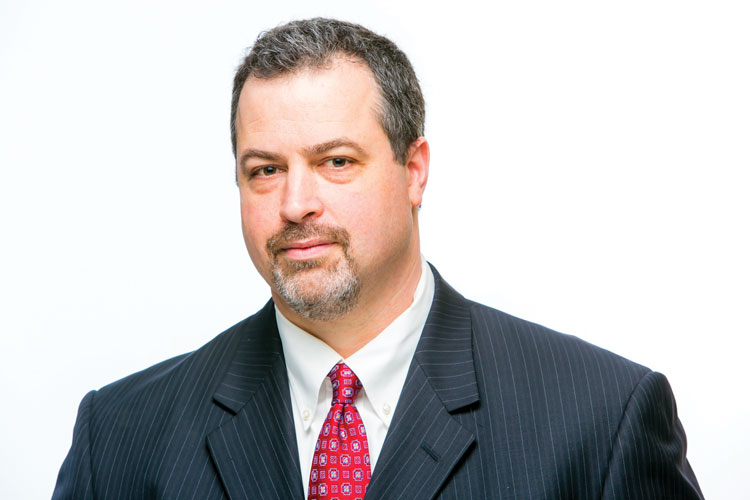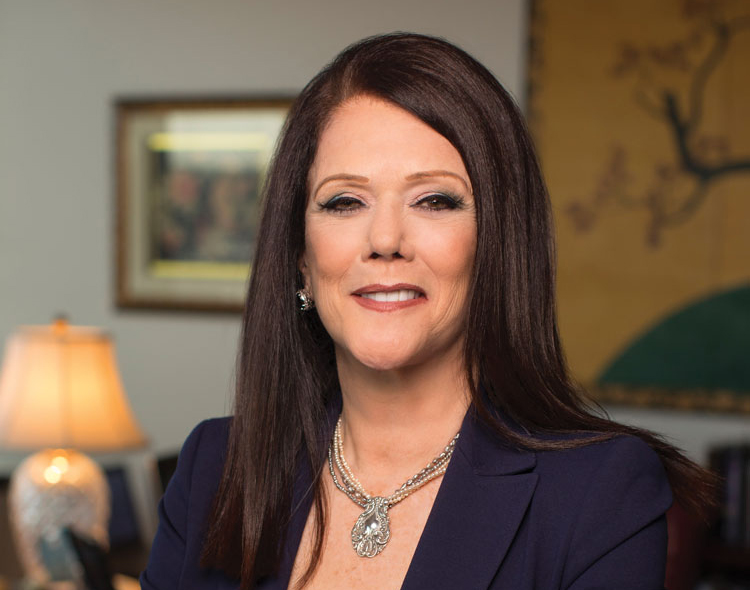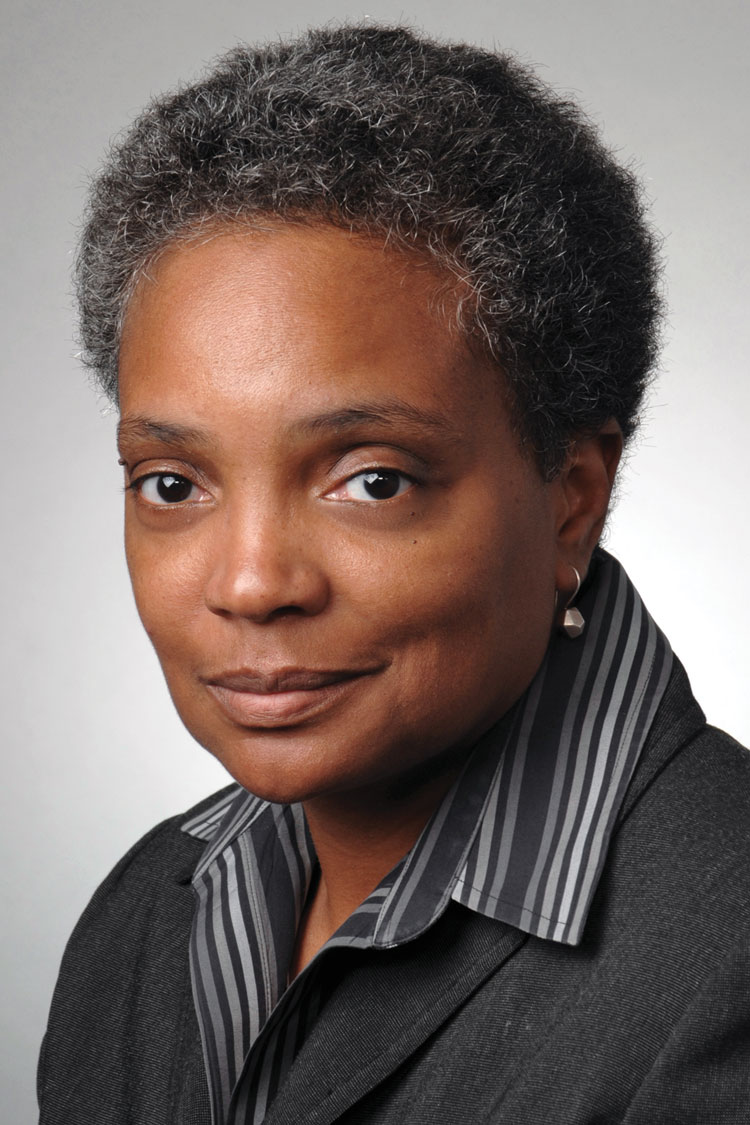The Chicago police legacy of extracting false confessions is costing the city millions

Terry Campbell: “The CPD and its detectives ‘have a long history of using physically and psychologically coercive interrogation tactics.” Photograph courtesy of Cotsirilos, Tighe, Streicker, Poulos & Campbell.
COSTLY CONFESSIONS
Chicago police have long grappled with a reputation for torturing suspects into confessing, due in large part to the notorious detective Jon Burge, who along with his “midnight crew” has been found responsible for beating, electrocuting and intimidating suspects from the 1970s to the ’90s.
The city has paid out more than $100 million in settlements and reparations in Burge-related cases alone and more than $500 million altogether in the past decade to settle police misconduct and wrongful conviction lawsuits, according to a report from the Better Government Association.
This seemingly endless succession of suits has fueled an acrimonious relationship between rank-and-file police officers and civil rights attorneys. Last year, a spokesman for the Fraternal Order of Police, the union representing officers, lashed out at a Chicago city council meeting after the city settled what was known as the Englewood Four case for $31 million.
Four young men confessed to raping and murdering 30-year-old Nina Glover but were later exonerated by DNA evidence. The FOP maintains the four are still guilty. It accused civil rights lawyers of carving out a cottage industry in the name of wrongful convictions and collecting handsome settlements from a city more than willing to open its checkbook.
“That’s just a reflection of the head-in-the-sand attitude of this department,” says Locke Bowman, executive director of the MacArthur Justice Center, which represented one of the four men. “There’s definitely a pattern in Chicago and around the country of singling out young African-American men who are vulnerable. Those kids were innocent, and it’s silly to say otherwise.”
A spokesman for the Chicago Police Department did not respond to requests to comment for this article.
Lori Lightfoot, past president of the Chicago Police Board, an independent civilian disciplinary-review body, says the amount of money the city has paid in judgments and settlements for wrongful convictions should demand accountability. “These are huge numbers that are coming out of taxpayers’ dollars,” says Lightfoot, who’s currently running for mayor of Chicago. “So I don’t know why there’s not a sense of urgency about these numbers.”
Each case should provide an opportunity to evaluate what happened. “Is it the officer? Is it our policy? Is it the tactic that was used? I think that analysis should be done in every single case and, frankly, in the aggregate,” Lightfoot says. “It gives the department an opportunity to look at itself and determine if they need to change in any specific way.”
Lightfoot, who also chaired the Mayor’s Task Force on Police Accountability, says the city is defending 400 to 500 active cases against the police department at any given time. “You can’t just chalk that up to opportunistic plaintiffs attorneys,” she says. “There is a problem, and there is a problem that needs to be fixed.”

Photograph of Kim Foxx courtesy of Cook County State’s Attorney’s Office.
But there’s also some disagreement about whether the term false confession always squares with actual innocence. Just because someone is exonerated—or legally entitled to a new trial—doesn’t mean police and prosecutors are willing to say they didn’t do it, as the FOP spokesman made clear.
Take the cases of Nevest Coleman and Derrell Fulton, who confessed to the 1994 rape and murder of Antwinica Bridgeman, 20, whose decomposed body was found in an apartment basement owned by Coleman’s grandmother.
Despite claims that the confessions were coerced and there was a lack of physical evidence, they were convicted and sentenced to life. The men were exonerated in November after new DNA testing excluded them and pointed to another man. Prosecutors refused to declare them innocent, saying instead the state could not meet the burden of proof to successfully retry them.
A month later, Gabriel Solache and Arturo DeLeon-Reyes, imprisoned for about 20 years for a double murder, were exonerated because of questionable confessions at the hands of a detective accused of misconduct. They claimed retired Chicago detective Reynaldo Guevara beat them until they admitted murdering Jacinta Soto, 35, and Mariano Soto, 39, in 1998.
Guevara, who had been accused for years of beating suspects, initially refused to testify, invoking his Fifth Amendment right. Prosecutors finally offered him immunity, hoping he could help affirm the convictions.
But under oath, Guevara said he didn’t recall details of the case and denied beating the men. A judge ruled his testimony was not credible and tossed the confessions, forcing prosecutors to drop the charges. “There is no doubt in my mind, or the mind of anyone who has worked on this case, that Mr. Solache and Mr. Reyes are guilty of these crimes,” said Eric Sussman, the Cook County first assistant state’s attorney at the time.
That is not unusual. Neufeld of the Innocence Project has observed that prosecutors often are reluctant to believe, or admit, they sent innocent people to prison based on false confessions. “There is an arc of denial,” Neufeld says. “It’s not unique to Chicago. Prosecutors are extraordinarily resistant to admitting a person is innocent.”
CHANGED WAYS

Photograph of Kathleen Zellner by Todd Rosenberg Photography.
Robert Milan used to think that way. In 2002, when he was chief deputy of the Cook County State’s Attorney’s Office, he had a revelation. Milan saw two murder cases in his office unravel—cases that hung on false confessions, including one from a teenager described as mentally disabled.
The following year, Milan developed a program to train prosecutors to detect warning signs for false confessions and prevent wrongful convictions. He eventually took it nationwide. “I started that training after seeing that these cases were problematic,” Milan says. “And then I studied cases across the country.”
Milan followed up by creating a DNA review unit, which reinvestigated cases where DNA testing hadn’t been done or was unavailable at the time and could support or discredit actual innocence claims. It became a model for similar units across the country. Today, 33 conviction integrity units exist in the United States. Their effectiveness and staffing vary, with some better funded and more aggressive than others.
Within days of taking office in 2017, Foxx, the Cook County state’s attorney, began revamping its conviction integrity unit, which she says was slow and inefficient under her predecessor, Alvarez.
“So much of what stagnated progress in this unit prior to this administration was the belief that why would anyone confess to a crime they wouldn’t commit?” Foxx says. “There was this need to believe that. Otherwise, we’d be acknowledging that we were convicting people who shouldn’t have been convicted.”
Foxx made it clear she would have an open mind in re-examining claims of innocence. “First and foremost, the recognition that someone would confess to a crime they didn’t commit is very real,” she says.
After posting instructions online on how to file claims and sending pamphlets to state prisons, the unit was flooded with requests. But not all cases were black and white. Foxx says her office struggled with the cases of Coleman and Fulton. “The unit itself concluded it was not a case of actual innocence,” Foxx says. “But would we be able to meet the burden of proof at trial of guilt? The answer we had was no.”
Still, because of the questionable interrogations and lack of evidence, Foxx concluded the charges had to be dropped. “It troubled us,” she says. “It pained us to try to characterize the right way to say what we were doing. These cases are really complicated.”

Photograph of Lori Lightfoot courtesy of Mayer Brown.
Coleman and Fulton have since filed civil lawsuits against the city, and a judge recently granted them certificates of innocence, which Foxx declined to comment on because of the pending litigation. Coleman’s attorney, Russell Ainsworth, says his client is indeed innocent and was fed details of the crime for his so-called confession. “It was ludicrous that this man, a working man with no criminal record, that his first arrest is for a murder and rape,” Ainsworth says. “He didn’t go into hiding. He didn’t run.”
Ainsworth suspects the pending suit is why the state’s attorney is reluctant to admit prosecutors were wrong. Still, he credits Foxx’s conviction integrity unit for its decision. “It shows a willingness to do the right thing,” he says.
Milan found himself in a similar position earlier this year while he worked as a special prosecutor to evaluate two innocence claims. He spent seven months investigating allegations that two men convicted of murdering the wife of a retired Chicago police officer in 1989 were beaten into giving false confessions.
Without the confessions, Milan told the judge, the evidence against the men did “not meet the burden of proof beyond a reasonable doubt,” but he did not declare them innocent. As part of an agreement to drop the charges, the men were barred from seeking certificates of innocence.
While not speaking about that specific case because it’s the subject of civil litigation, Milan says prosecutors must do the right thing based on available evidence. “In your mind, as a seasoned prosecutor, you know that it doesn’t meet the burden. If it doesn’t meet the burden, then we have to drop it. That’s our duty,” he says. “But at the end of the day, you can’t say they’re innocent.”
To avoid these kinds of cases, Foxx says her office has been training prosecutors in the felony review section on how to identify signs of false confessions and to analyze whether interrogators are following proper procedure. Prosecutors also meet regularly with Chicago police to review cases and explain why some cannot move forward, including those in which confessions can’t be corroborated by other evidence.
This article was published in the July 2018 ABA Journal magazine with the title: "Under Questioning: The Chicago police legacy of extracting false confessions is costing the city millions."



